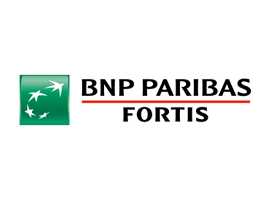Sustainable Entrepreneurship: Shifting Paradigms to Better Align Interests
What role can governance play in the field of sustainability in the backdrop of growing uncertainty and of global slowdown? Why are companies not taking sustainability seriously, despite increasing awareness of the multiple links between sustainability and entrepreneurship? According to the most recent Edelman Trust Barometer, as many as 71% of companies believe that climate change will not affect their activities. However, as Koen De Leus, Chief Economist at BNP Paribas Fortis, puts it: “no business without a planet”.
GUBERNA Alumni gathered on 10 December 2019, at BNP Paribas Fortis to discuss the key challenges and opportunities that sustainable entrepreneurship poses to corporate governance.

Sustainability as a strategic business factor
The main conclusion from the debate, animated by Catherine Delanghe (founder and managing director of the Centre de Bonne Gouvernance Paul Tassin) resides in the importance of integrating sustainability within the company strategy. A CSR Charter may help setting a clear reference framework, also for the purpose of incorporating sustainability issues within the business plan. As pointed out by the panellists, stakeholders are one of the main drivers that will push companies to embrace sustainability even more in the future. Indeed, consumers more and more value and trust those companies that are committed to contributing to a better world.
However, not only consumers are increasingly vocal about sustainability: investors are also attentive to measurable indicators allowing to assess the impact of their investments. Noémie Laumont, advisor and independent director specialised in energy transition, stressed that finance can be a powerful lever to push for sustainability-oriented changes within corporate governance.
Finally, young and highly educated staff are more demanding towards employers with regards to their CSR practices. It is therefore crucial for employers to profile themselves as strongly engaged in sustainable matters if they want to successfully lead the war of talents.
Acting under the pression exerted by public attention, the political world, often accused of acting too slowly or not at all, embraces sustainability as one of its purposes. Ursula von der Leyen, president of the European Commission, announced the launch of a Green Deal - EU’s new growth strategy - on 11 December 2019. This plan includes noteworthy measures such as a Just Transition Fund, that shall be implemented globally, and a 1 trillion-euro Sustainable Europe Investment Plan to attract global investments into European environmentally responsible projects. A clear regulatory framework is key for investors and entrepreneurs to identify risks and opportunities. Besides the EU, national and regional authorities are also working on sustainability-related measures that, while challenging businesses, will at the same time create new opportunities that must be seized strategically and with a sparkle of creativity. (1)
New Forms of Innovation and Agile Governance
The UN Sustainable Development Goals (SDGs) can serve as an additional reference framework offering useful tools to identify, assess and measure risks and opportunities deriving from sustainability issues. As testified by Roland De Wolf based on his experiences as chairman of De Saedeleir, a family holding, and as board member of ArmenTeKort, a not-for-profit organisation, the upsides of working with SDGs is that they are by now largely recognised by a global community, well aware that SDGs enshrine opportunities for a better living. The complementarity of SDGs and their percolative power, may help reach a multitude of concrete objectives and encourage the development of smart solutions. Sustainable innovation and smart thinking are absolute needs within the third wave of governance: how can we create new forms of governance with an eye on inclusion and sustainability? How can young entrepreneurs, innovators and leaders get access to boards before it is too late? Times are ready for a new generational deal bridging complementary expertise and visions.
Given that business contexts are not uniform, answers are multiple and pave the way to complementary actions that are often interrelated. Pascal Leglise, CSR Director at Carrefour Belgium, and Ann Magnus, CEO of Magnus Business Gifts, proved that all companies can set out on the road towards sustainability, each in their own way aligned to their specificities. Intentions can (and should) win over resources, size or compliance constraints. A CSR policy, a true bottom-up approach and openness to surrounding communities serve as powerful tools. Leglise went even further by stating that we should all understand that SRI encompasses economic interests and that ESG issues are a financial stake. This position can help break the current deadlock opposing shareholders to stakeholder value. Furthermore, Belgian companies have joined forces in common initiatives promoting sustainability within the business world. (2)
Where do we go from here?
Governance has for sure a role to play within similar initiatives, given that the third wave of governance imposes agile changes in new forms of governance, innovation and sustainability. First of all, a sustainability taxonomy can serve as common vocabulary in order to clearly understand the meaning and impact of several sustainability factors, and which ones are relevant for whom. The classification system – or taxonomy – for environmentally-sustainable economic activities published on 18 June 2019 by the European Commission’s Technical Expert Group on sustainable finance constitutes a first milestone in this direction. However, further initiatives are needed to translate this work into a director-friendly governance vocabulary; training sessions, focus groups and platforms enabling the exchange of best practice are possible actions.
It also seems that a closer link between entrepreneurs and young generations is needed, and not only from a marketing perspective. A wide young and underrepresented audience that remains yet to be reached, could contribute their diverse viewpoints to business activities. Overall, the fast-moving VUCA world we live in brings about exciting opportunities together with the quick changes we may be struggling to deal with.
GUBERNA will continue to explore these changes in paradigms at the New Year’s Ceremony 2020 on 23 January which is dedicated to Sustainability in Finance. Is the current growth paradigm compatible with a sustainable approach? How is the financial sector tackling the challenges imposed by the climate change and what is it doing to favour the transition towards a sustainable entrepreneurship?
We are committed to focus on these topics all through 2020 and will organise a reflection moment in the form of a Summer School in early July. Through our knowledge-development services, we want to provide the keys to better identify the relevant ESG challenges and the appropriate definition of sustainability for the various companies and directors in our network. To this end, GUBERNA insists on the importance of defining a clear company purpose. Purpose is indeed strictly linked to sustainability, be it for stakeholder value creation or to develop business activities in the long term.
It is not only time to act, but it is time to act with agility. Nobody should underestimate the magnitude of the issues at stake because, be the sustainability tsunami fake or real, the third wave of governance is here to stay.
Notes
(1) Isaac Getz and Laurent Marbacher have singled out a new form of companies that, despite not directly seeking profit, largely overperform their competitors who focus on economic profit. They have defined companies corresponding to this model as “entreprises altruistes”.
Biomimicry, or the conception of products that are modelled on biological entities and processes, is another creative example of sustainable innovation.
(2) The Shift (https://theshift.be/en) is the major Belgian platform promoting sustainable business models.
GUBERNA would like to thank BNP Paribas Fortis for hosting the Alumni Forum 2019, Koen De Leus for delivering an insightful keynote speech, all panelists as well as our Alumni Olivier Brissaud, Laurent Janssens and John Metselaar for their additional input.

